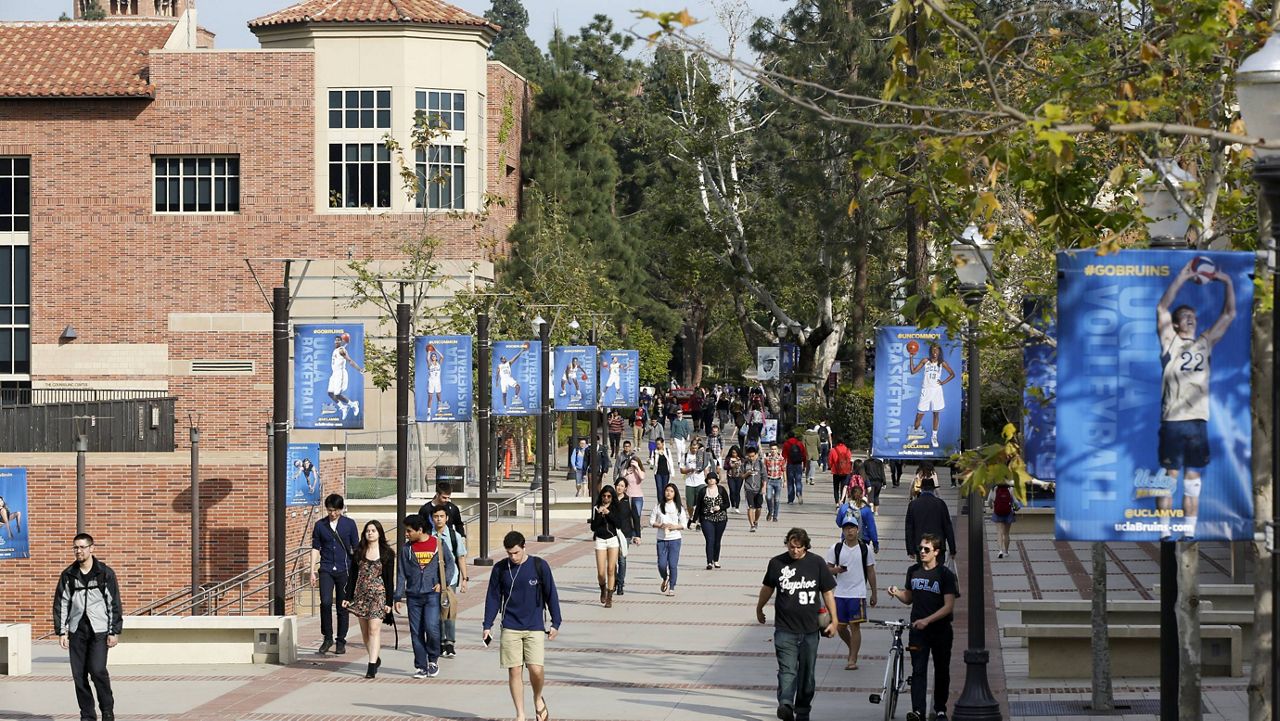LOS ANGELES (CNS) — Following the conviction of former police officer Derek Chauvin in the death of George Floyd in Minnesota, Southland and California university leaders vowed to continue challenging systemic racism nationwide, with diverse campuses playing a key role in the fight.
What You Need To Know
- "As Bruins, we are committed to creating a world of justice and dignity for all," UCLA Chancellor Gene Block said in a community message
- Joseph I. Castro, chancellor of the Long Beach-based California State University system, said he was "relieved" at the verdict and hoped it brought some solace to Floyd's family
- Cal University President Michael V. Drake and UC Board of Regents Chair John A. Perez released a joint statement, saying Chauvin "grossly and maliciously overstepped his duties as a police officer when he killed George Floyd"
"As Bruins, we are committed to creating a world of justice and dignity for all," UCLA Chancellor Gene Block said in a community message. "We must challenge the devaluation of Black, Brown, Native or Asian lives. This must be an urgent obligation and new normal for every person and every institution in our country."
"UCLA will keep doing the work to meet that obligation," Block said. "As a university, we must create opportunities to promote change through our scholarship, teaching, and service. The training we provide here shapes the leaders of tomorrow. UCLA remains committed to doing all we can to address inequity and create a community — and a country — where there is no doubt that Black lives matter. I and so many others across this country saw a glimmer of reform in the outcome of the Chauvin trial."
USC President Carol Folt wrote on Twitter, "While the verdict in the murder of George Floyd is in, our work to fight racism and make the world more just continues. We are committed to the movement for true and lasting change, here at USC and across the nation."
Joseph I. Castro, chancellor of the Long Beach-based California State University system, said he was "relieved" at the verdict and hoped it brought some solace to Floyd's family.
"The horrific death of Mr. Floyd — and the trial itself — have been traumatic experiences for many African-Americans and other people of color within the CSU community and across the state and nation," Castro wrote in a message to the CSU community. "The trauma is rooted in generations of systemic racism in our country, which has had a profoundly negative impact on African American families."
He said the CSU system can serve as an "inflection point" that "marks a turn toward healing, reconciliation and recovery."
"Our position as the largest and most diverse public university in the nation also makes us the most consequential university at this critical moment in our country's history," Castro said. "We lead the nation in driving social mobility for our students, yet there is much more work to do. The CSU is part of an educational ecosystem in California that must eliminate, once and for all, equity gaps among our students and prepare more African-American students for admission to and graduation from the CSU and other universities."
University of California President Michael V. Drake and UC Board of Regents Chair John A. Perez released a joint statement, saying Chauvin "grossly and maliciously overstepped his duties as a police officer when he killed George Floyd."
"This verdict will not ameliorate the incredible pain and grief the Floyd family are experiencing, or the pain and suffering endured by so many more," they said. "It does, at least, reaffirm the principle that no one is above the law, especially not a peace officer trusted with protecting a community's safety and security. Although it cannot bring back Floyd, may today's jury decision give his family and loved ones a measure of peace, and encourage our country to reimagine and work toward a safer and more equitable future for us all."
At USC, the Trojan football team canceled its practice following the verdict. In a statement, the team said it will "instead discuss the racial injustices prevalent in our society and in our daily lives."
"While we realize there is much work that needs to be done, it is important not to push the conversation to a later date as our Los Angeles community has witnessed injustices for years," according to the team. "We will continue to work with our university and local communities to use our platform to promote positive change."
Pomona College President G. Gabrielle Starr stated, "Let us take a moment, and let us move forward until there are no more horrific killings like this one, no more families and communities forced to mourn and there is no longer a need for trials like this one."



